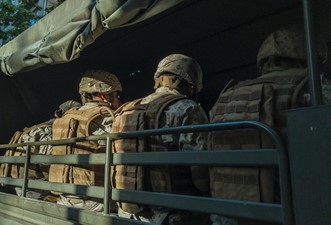Edisson Quituisaca of Sleepy Hollow is a marine veteran who currently works in private security. In the following article, Edisson Quituisaca discusses ways employers can support veterans in the workforce, and the changes employers can make to be more inclusive of veterans during the hiring process, retaining quality employees over the long-term.
Those who served in the military are productive, dedicated, and understand the importance of following through on a mission. However, most businesses are not retaining—or even hiring—many veteran employees.
Edisson Quituisaca says that supporting veterans in the workforce begins with making changes to the hiring process. Updating job descriptions, recognizing transferable skills, making use of veteran networking, and tracking the hiring data is an excellent place to start.
When it comes to veteran retention, necessary changes include providing a strong sense of purpose, understanding military culture, and providing regular feedback.
Hiring Veterans
The lack of former military service members in the workforce boils down to two main causes: employers are not recognizing the value of military-trained employees, and veterans are not applying to these jobs.
In order to better support service members, employers need to understand the transferable skills that military service can provide.
Revise Job Descriptions
Edisson Quituisaca explains that traditional job descriptions typically contain a degree or qualification and experience within the field. However, many veterans do not meet these requirements yet are still fully capable of completing the duties of the position.
By indicating core knowledge, skills, and competencies that these degrees and years of relevant experience are supposed to provide, this will open up their doors to more veteran applications.
Acknowledge Transferable Skills
One of the main reasons that employers are not considering service members for certain roles is because they may not understand the applicable skills that each veteran can bring to the table. Military veterans do not just excel in security or police work – but various fields such as technology, communications and within the financial sector.
However, Edisson Quituisaca reports that veterans acquire a number of transferable skills during their time in the military, including a strong work ethic, leadership skills, quick thinking, and reliability under pressure. Understanding the ways in which skills from a service occupation transfer to civilian roles will ensure employers see the true value of the veterans that are applying.
Capitalize on Networking
Veterans trust other veterans, and they can relate to other veterans on a deeper level. Employers can utilize this knowledge to make their companies more desirable to veterans seeking employment.
Edisson Quituisaca of Sleepy Hollow says that treating veterans and their families with respect and encouraging current veteran employees to promote the company as service member friendly are both excellent ways to attract veterans to open jobs.
Track Hiring Data
There are a number of steps that an applicant must go through during the hiring process. These include access to the job postings, the initial application screening, and one or multiple interviews. Analyzing the percentage of veterans that are present at each stage will help employers see where the holes are in their hiring process.
For example, Edisson Quituisaca of Sleepy Hollow explains that if former service members aren’t applying for the position, either they aren’t seeing the job postings, or the requirements of the job are too focused on formal education and relevant experience in the industry. Being aware of the shortcomings in the hiring process is the best way to support future veteran applicants.
 Improving Retention
Improving Retention
Research has shown that most veteran employees do not make it through a full year in a new job. While this can be attributed to many factors, studies have also indicated that veterans are not getting what they need out of their roles—a lack of purpose, an undesirable workplace culture, and inadequate feedback are common reasons for veterans to leave a job.
Focus on the “Why”
Edisson Quituisaca of Sleepy Hollow explains that during military deployment, service members are constantly aware of the importance of their work; each mission has a highly significant purpose.
Civilian jobs frequently emphasize the “what” of the work instead. Altering this framework to give veteran employees a clear understanding of the “why” behind their mission will give them a strong sense of purpose and encourage retention.
Integrate Military Culture into Management
The culture and values that characterize military occupations are quite different than the ones present in the civilian workforce. Strong leadership, direct conversations, formal procedures (or an explanation for the lack of them) and enough trust for autonomy are all crucial for a veteran’s assimilation into the workforce.
Provide Frequent Feedback
Clear and direct feedback is a constant in the military world, and veterans become accustomed to this level of engagement from their superiors. Edisson Quituisaca of Sleepy Hollow explains that if this is missing in the civilian career, they may feel out of touch in their new role and unsure of how to proceed. Providing regular feedback will help veterans feel comfortable in their role and more likely to stay.
Final Thoughts
Supporting veterans in civilian positions is not only a patriotic duty, but also a smart business decision.
These men and women have acquired valuable skills and experience during their military service and can bring a unique perspective to any organization. By offering them mentorship, training, and support, we can ensure that they successfully transition to civilian life and thrive in their new careers.
Let us remember that veterans have sacrificed greatly for our country, and it is our responsibility to honor their service by providing them with the resources they need to succeed in the civilian workforce. By investing in our veterans, we are not only helping them achieve their full potential, but also strengthening our communities and our nation as a whole.



 Improving Retention
Improving Retention


